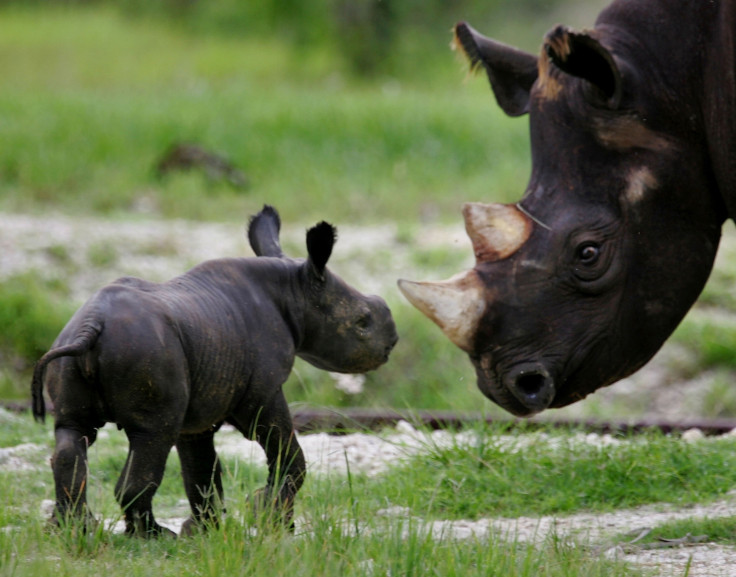Zimbabwe: Two black rhinos poisoned as illegal poaching continues in Africa

A female black rhino and her calf have been poisoned by poachers in Zimbabwe.
The two animals were discovered at a waterhole near Chipinge, 400 kilometres from Harare, news agency Sapa reported.
Their carcasses were found before poachers had time to completely remove the horns, which had already been partly cut.
These are the first rhinos to be poisoned after more than 100 elephants were killed in Zimbabwe's Hwange National Park in 2013, when poachers put cyanide into watering holes and salt licks.
The Black rhino is a critically endangered species. There are 450 black rhinos left in Zimbabwe and only 4,880 throughout Africa.
Rhino and elephant poaching is endemic in several countries in Africa, where poachers are sometimes linked to rebel groups who sell horns and tusks to fund their activities.
Rhino horns are mainly illegally traded with Vietnam and China for use in traditional medicine.
Last October, Namibia approved rhino dehorning in national parks in a bid to tackle poaching. The animals are darted with an anaesthetic and then they have their horns cut off with a chainsaw or hacksaw.
According to the NGO Global March for Elephant and Rhinos, which organises marches worldwide to raise awareness on the poaching issue, a rhino is slaughtered once every 9-11 hours for its horn, while an elephant dies every 14 minutes for its tusks.
At this rate, the NGO warned that rhinos and elephants will be extinct by 2034.
Campaign groups Save the Elephants and The Aspinall Foundation warned in a December 2014 report that China's skyrocketing demand for tusks will make elephants extinct within one generation.
© Copyright IBTimes 2025. All rights reserved.




















